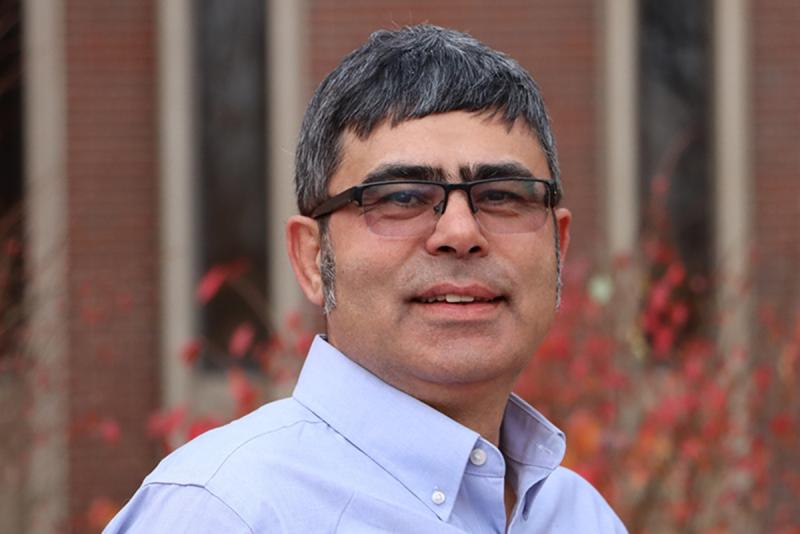CAHSS Economics Professor Discusses 2025 Economic Outlook

Following a contentious presidential election in which the economy commanded center stage for voters on both sides of the political divide, CAHSS News asked Economics Professor Yavuz Yaşar for his take on the U.S. economy and how shifting U.S. polices could affect the economic outlook for 2025. Yasar teaches economics in the College of Arts, Humanities & Social Sciences Department of Economics.
The presidential election highlighted the gap between dropping inflation rates over the last few years versus the continuing perception of high inflation among voters still experiencing increased prices for just about everything. What’s behind that disconnect and what can we expect to experience in 2025?
When we look at whether inflation has improved over the last few years the answer is yes and no. Yes, inflation went up in mid-2022 to a high of 9.1% and later came down to where it is now at 2.4%. But while inflation is going down and the economy is growing, the perception of the electorate is that the economy is in trouble.
That perception is rooted in a differential impact of inflation. Between January 2019 and January 2024, the cumulative inflation rate was about 25%. This is significant because the real household income for the bottom income quintile grew only 2.4% (vs. 25.5% for the top income quintile) between 2002 and 2019. So, the effects of inflation are unequally distributed and despite recent inflation reduction in the U.S., it is still a huge problem, especially for lower-income people.
"... the effects of inflation are unequally distributed and despite recent inflation reduction in the U.S., it is still a huge problem, especially for lower-income people."
Do you think disinformation about the state of the economy also played into heightened fears about the economy among voters?
Definitely. For example, major economic news sources like the Financial Times and The Wall Street Journal had been reporting on the economy doing better and looking stronger and why that translated into different viewpoints from the candidates. In this case, the viewpoint asserted by now President-elect Trump that the economy is broken, and his policies would fix it are an example of major disinformation.
Even The Wall Street Journal, which is the most pro-market and pro-business news outlet, reported that if President Trump was reelected and carried through on his policies such as mass deportation of illegal immigrants, there would be an inflation hike because our U.S. labor force depends on those workers. Such sudden mass deportation also could lead to much higher wages and the cost would be passed on to the consumer.
Similarly, if implemented, President-elect Trump’s plans to raise tariffs significantly on products imported from China and other countries and implement additional tax cuts would raise deficits by $7.5 trillion, according to The Wall Street Journal. It is extremely important to note that these projections assume that those policies will be very large in scale and implemented very fast. However, if they are implemented gradually, and on smaller scales, we may observe just the opposite of those dire projections, at least, in the near future.
Economics is sometimes seen as less accessible than some other social sciences, yet interest in the economy has surged in recent years. What’s behind that?
This question goes to the heart of our department’s critical approach that aims to make economics more interesting and accessible. For many, economics is full of abstract ideas and inaccessibly mathematical. But we connect how economics relates to our students’ daily lives. We encourage them to question and expose them to different and even diametrically opposite economic theories. Then, we strengthen their critical perspective by providing the analytical aspects of economics.
The recent presidential election was all about the future of democracy and the candidates’ opposing views on economic policies. But the number one issue on everyone’s mind remains the economy, so teaching economics from a critical perspective that shows its relevance in young peoples’ lives is important.
In your opinion has the Federal Reserve done a respectable job of keeping inflation in check and getting the economy back on track? What are the Fed’s top tasks in 2025?
The Fed’s actions to control inflation by raising interest rates can only partially explain the fall in inflation. Most of the decrease in inflation can be explained by diminishing post-pandemic supply-chain constraints, decreasing food and energy prices (partly due to the use of petroleum reserves) and the declining cost of imports due to an appreciating dollar. The decreasing effects of sellers’ inflation — wherein large corporations raise prices beyond what is necessary to cover their increased costs during unexpected economic challenges such as the pandemic — was also a factor.
The Fed’s goal of achieving a so-called “soft landing” is already happening because we avoided a recession that was a concern among economists for a long time. The long-term goal among economists seems to be keeping the inflation rate hovering around 3% which would help ease one of our main problems in the U.S — the unavailability and high cost of housing. The Fed’s ability to continue to lower interest rates based on lower inflation should help lower mortgage rates.
The Denver area is one of the places in the U.S. where housing costs have sharply risen in recent years. How do you see economic policies affecting the cost of housing locally in the coming year?
I don’t have specific research on this, but throughout Denver and Colorado we’ve been seeing positive figures in terms of employment growth between September 2023 and September 2024. But when you look at Denver County specifically, employment growth is declining. And I wouldn’t be surprised if part of this is due to the cost of housing. Affordable housing affects the reasons people take, stay in and leave a job.
The trend toward treating houses just like any other financial investment (rather than for satisfying a basic human need) has accelerated over time. That trend has continued to the present day and, along with the increased population in Denver, contributed to higher and higher housing costs. Corporations also have been buying up houses nationwide and in Colorado and looking for tax loopholes through renting them as Airbnbs.
What are the key factors you see affecting the global economy in the coming year including the conflicts in the Middle East and Ukraine?
The International Monetary Fund’s (IMF) most recent global economic outlook projects inflation to hover around 3.5% except in developing countries that rely heavily on imported goods. Those countries are experiencing much higher inflation because their currency is weak against the dollar and other major currencies. But a global recession appears to have been avoided and the IMF has projected a 3.2% growth in the global economy over the next year.
Both The Wall Street Journal and the pro-labor Economic Policy Institute drew the same conclusion during the presidential campaign — that the next president would be inheriting the strongest economy in the recent past. Going forward, one of the most important factors will depend on what role the U.S. plays in either helping to escalate or resolve the war in Ukraine and the conflict in the Middle East. The U.S. has significant influence over the war in Ukraine and the conflict in the Middle East so, we could minimize the damage or fuel it further.
To close, are you personally hopeful about the outlook for the U.S. economy in 2025?
I’m overly cautious. As I was saying, between 2019 and 2024, cumulative inflation was around 25% and it continues to hit lower-income people disproportionately. If the new administration implements these policies of mass deportation, lower taxes and higher tariffs leading to higher inflation and interest rates, these people will be most affected.
Increasing inequality in income and wealth distribution in the U.S. was what made the recession of 2007-2008 and the depression of 1929 the “Great Recession” and “Great Depression,” respectively. Maldistribution of income and wealth always make economies more vulnerable and fragile. A fairer distribution of income and wealth could make the economy more resilient. But if we don’t address that issue, not only are we making the economy more fragile but also undermining the foundations of democracy regardless of who is in charge!





